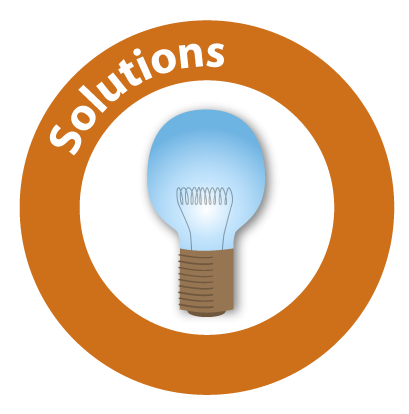|
| | Solutions Families UseSome of the solutions families use to help manage attention issues and ADHD include: 1. Ask Your Primary Care Provider (PCP)Your child’s primary care provider (PCP) can use developmental screening tools to help determine if attention issues are a concern. A PCP can also help you to rule out medical concerns that can look like attention struggles. Learn how to bring up a concern. 2. Find a Mental Health ProfessionalA mental health professional can help you to understand how attention issues are impacting your child. Many types of mental health providers can diagnose ADHD, including psychologists, counselors and clinical social workers. Some families also work with psychiatrists and use medication to help manage symptoms. Finally, you can use an ongoing relationship with a counselor to help your child focus on strengths (#3), practice social skills (#4) or learn emotion regulation skills (#5). Learn how to choose a mental health provider to work with your family (guide) (podcast). 3. Take a Strengths ApproachChildren with attention issues or ADHD often struggle with poor self-esteem. These children may be criticized by others for failing to pay attention, doing poorly with school work, or failing to complete activities. Yet, these children often have strengths in imagination, flexibility, intuition and more. Learn how to highlight your child’s strengths and build self-esteem with this podcast. 4. Try Social Skills TrainingMany children with attention issues or ADHD struggle with social skills. This happens for a lot of reasons, including delayed development in executive function (EF), difficulties paying attention to social cues, managing impulse control to take turns and not interrupt, and so on. Many families benefit from speech therapy or counseling (where children can learn social skills 1:1), social skills groups or parent education on social skills. Search the provider directory for speech therapists, counselors or social skills groups or listen to these podcasts to learn more about social skills. 5. Teach Emotion Regulation SkillsAll children struggle with emotion regulation at some point, but for kids with attention issues or ADHD, managing big emotions can be especially challenging. That’s because – for kids with attention issues or ADHD – the ability to use their emotional “pause button” tends to develop much later. When it does develop – it’s often much more difficult to use. To help, families often work with therapists to help kids develop skills. Search the provider directory for social/emotional skills groups or learn how to choose a mental health provider for your family. 6. Build Exercise, Sleep and Healthy Diet into Daily RoutinesResearch has shown that exercise and sleep are even more important for children with attention issues or ADHD because they can reduce hyperactivity and improve attention. Some families work with nutritional experts to boost attention and focus with dietary changes. Search the provider directory for adapted/inclusive recreation or sports or listen to this podcast to learn more about healthy sleep routines. 7. Support Yourself with Parent TrainingCaring for a child with attention issues or ADHD can be challenging, especially if you do not experience the same kinds of challenges. Parent training programs like the Kazdin Method, Triple-P, and The Incredible Years can help you to set consistent limits and manage your child’s behavior effectively. You can learn more about some of the parent training programs available with this guide or attend a Behavior Chat program to learn new tools and connect with other families. 8. Add Structure, Routines and VisualsChildren with attention issues or ADHD often struggle with executive function (EF). EF, which helps us plan, prioritize and understand consequences, continues to develop into adulthood. Think of structure, routines and visuals like training wheels on the EF bicycle – they help your child until they develop the skills they need. Learn more about executive function with this guide, understand how structure helps with this podcast or check out this how-to guide to get started creating your own visual schedule. 9. Solve Problems CollaborativelyMany children with attention issues or ADHD have challenging behaviors. These kids would do well if they could, but often have not developed the skills they need to succeed. Families who solve problems collaboratively with their children are able to work on developing these skills while improving challenging behaviors. Learn more about Ross Greene’s Collaborative and Proactive Solutions (CPS) model or listen to a podcast about CPS. 10. Communicate with SchoolApart from time spent at home, children spend most of their time at school. Having good communication with your child’s school team can help school staff to support your child. Some children with attention issues or ADHD may also benefit from special education services. Learn how to communicate better with your child’s school (guide) (podcast) or discover how to get started with special education. 11. Use Assistive TechnologyMany families use assistive technology, including smart speakers, watches, tablets, and specially designed equipment/services to boost executive function skills in their children. This webinar from CHADD introduces assistive technology and walks you through several different examples. You can also try assistive technology right now by clicking the purple icon on the lower left side of this screen. Next click the Focus tool to toggle different options for reading focus. |
Connecting for Kids Resource List
Related Resource Guides
|
Back to Attention Issues & ADHD Guide.

